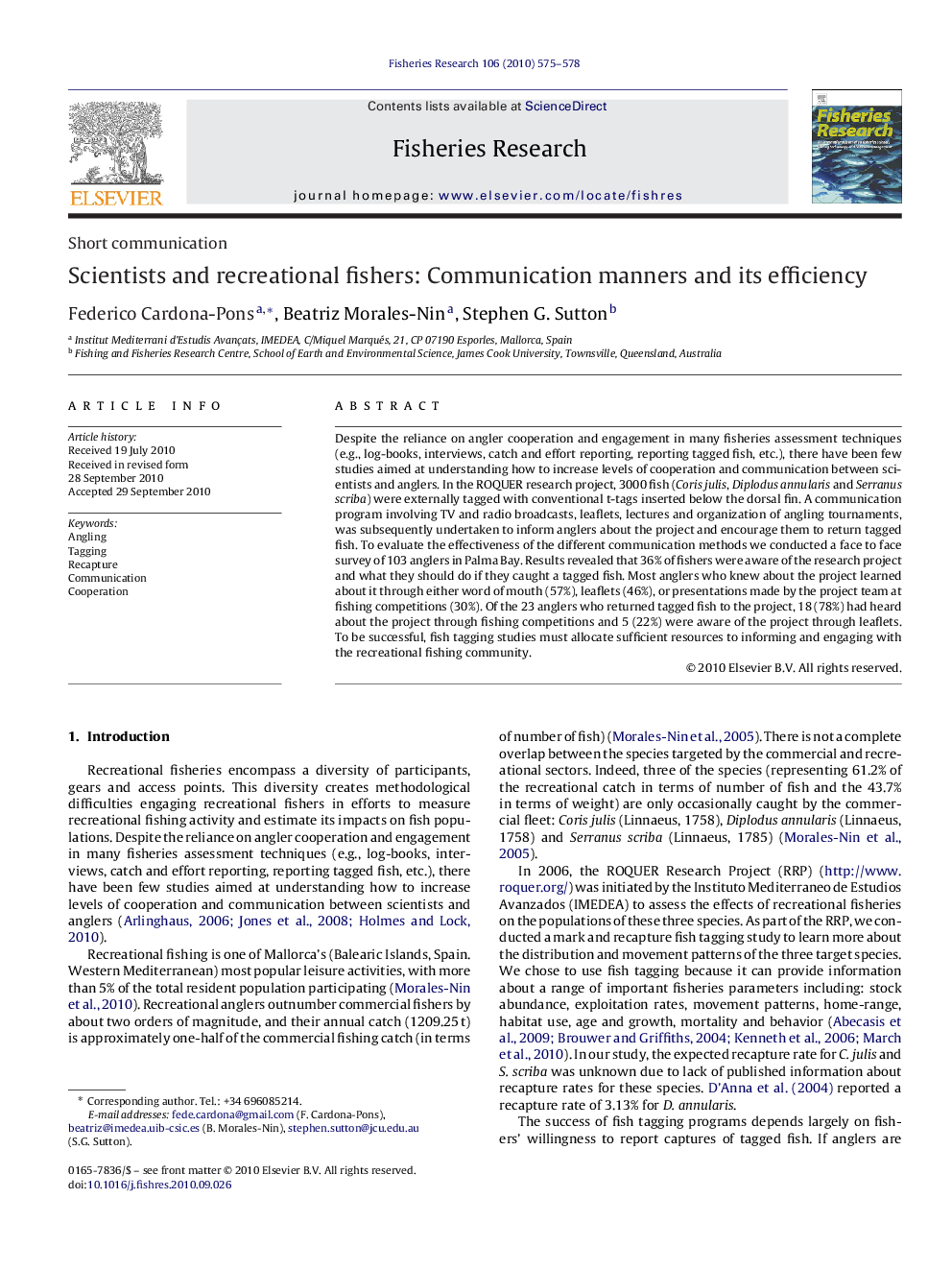| Article ID | Journal | Published Year | Pages | File Type |
|---|---|---|---|---|
| 4543981 | Fisheries Research | 2010 | 4 Pages |
Despite the reliance on angler cooperation and engagement in many fisheries assessment techniques (e.g., log-books, interviews, catch and effort reporting, reporting tagged fish, etc.), there have been few studies aimed at understanding how to increase levels of cooperation and communication between scientists and anglers. In the ROQUER research project, 3000 fish (Coris julis, Diplodus annularis and Serranus scriba) were externally tagged with conventional t-tags inserted below the dorsal fin. A communication program involving TV and radio broadcasts, leaflets, lectures and organization of angling tournaments, was subsequently undertaken to inform anglers about the project and encourage them to return tagged fish. To evaluate the effectiveness of the different communication methods we conducted a face to face survey of 103 anglers in Palma Bay. Results revealed that 36% of fishers were aware of the research project and what they should do if they caught a tagged fish. Most anglers who knew about the project learned about it through either word of mouth (57%), leaflets (46%), or presentations made by the project team at fishing competitions (30%). Of the 23 anglers who returned tagged fish to the project, 18 (78%) had heard about the project through fishing competitions and 5 (22%) were aware of the project through leaflets. To be successful, fish tagging studies must allocate sufficient resources to informing and engaging with the recreational fishing community.
